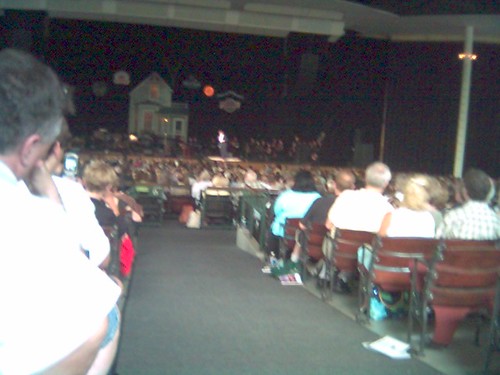Since I didn’t really have a “side” going into the recent General Convention, I can’t really feel as though my side won or lost. At the end, it looks like everyone lost — to the extent that “liberals” won most votes until the end, when they wound up passing a resolution that contradicts the legislation and actions they had been taking so far; either they didn’t really mean all those votes for the first week of the convention, or they didn’t mean the conciliatory note they tried to strike on the last day (and the “Statement of Conscience” by a number of bishops demonstrates the flimsiness of the Episcopal Church’s affirmation of Windsor Report’s expectations). “Conservatives” elicited a reluctant expression of apparent apology, but obviously they lost the vast preponderance of the particular motions and elections; the convention’s proceedings rejected everything that would have pleased “conservatives.”
I expect all sorts of unpleasant fallout from this. I doubt Canterbury wants parallel jurisdictions in the U.S., so I suppose that they may recognize the authority of U.S. bishops, but exclude them from participation in the life of the Anglican Communion unless they repudiate the Episcopal Church’s recent actions — and then to allow parishes that want to remain in communion with Canterbury to affiliate with like-minded bishops, as near to local as possible. That would leave room for U.S. dioceses and parishes to pursue their own ends, but would definitively relegate U.S. (and Canadian and, eventually, U.K. and some other) “liberal” bishops and clergy in a twilight zone where they’re acknowledged as para-Anglican, but not acknowledged as holding any juridical authority relative to the church at large. But I expect that everyone wants a more decisive outcome than that, so many will press to have U.S. Episcopalians cut off, and plenty of U.S. Episcopalians don’t want to be accountable to a world church that disagrees with them.
If I weren’t aware of how partial my insight is, I’d suggest that very many of the most prominent spokespeople on the present miasma have lost touch with two facts. Fact One is that, however homophobic some people may be, there are very sound theological reasons for conservatives to resist the consecration of lesbigay bishops, and the blessing of same-sex relationships. I don’t hold to those ideas — I don’t think they’ll hold up in the long run — but that doesn’t make them nugatory, or bigoted, or uninformed, or illogical. The people whom I think wrong have a very strong case.
Fact Two is that pious, faithful, learned, spiritually profound theologians hold that there should be no ecclesiastical impediment to these consecrations and blessings. However problematic those sacramental gestures seem to some observers, and however many weak reasons that some proponents advance, a significant constituency of responsible Anglican theologians thinks that hetero- or homosexuality ought not determine full participation in church life.
If we were taking seriously both these facts, I imagine the Episcopal Church’s last two weeks would have run rather differently — but it’s easier, and more practically effective, to trade in straw adversaries and overblown polemical misrepresentations. Presumably the partisans expect that their protestations of “Lord, Lord, did we not prophesy in your name, and cast out opponents in your name, and enact many deeds of power in your name?” will be met with a hearty, “You bet!” I wonder whether there might not be another possible answer to that question.
